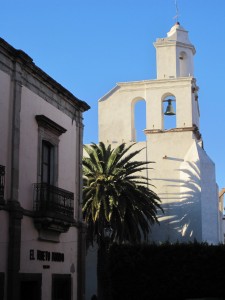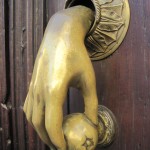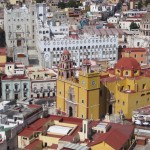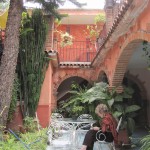I’m soon off to Los Cabos for a week of Mexican sun with my family! Primarily we’re escaping the Canadian snow, of course, but I’m brushing up on my Español in hopes of real conversation with a waiter at the all-inclusive resort or possibly a visit with our friends from Guadalajara. I want a multifaceted experience: Spanish communion, sandy beach, authentic enchiladas, a few bars of Mariachi.
My friend Dallas shared with me a rivetting article, “Reclaiming Travel,” which appeared last summer in a column in The New York Times. The basic thesis is that today’s tourism (modelled by my upcoming vacation with its focus on rest, entertainment, and personal enrichment) is but a faint shadow of real travel (more like a pilgrimage or quest in its cross-cultural and transformational search for meaning). Tourism is largely what we do nowadays; travel is something more rare that changes who we are. The human journey first started, the writers of the piece claim, at our expulsion from the Garden of Eden, when we were condemned to wander—our wandering becoming a wondering about exile and about our true home, with hearts restless for something lost.
(If you’re interested in the biblical ground for mankind’s wandering and wondering about the road, homecoming, and rest, you might be interested in three of my biblical studies I posted in April, June, and July of 2012, here.)
Of course, journey is a frequent theme in classic literature; think of Homer’s Odyssey (telling of the Greek hero’s mythic return home after battle) and Dante’s Divine Comedy (a spiritual travel tale tracing the path from the “dark wood” through hell and purgatory to heaven). The meme continues through to stories written today, from Gulliver’s Travels, Innocents Abroad, and Around the World in Eighty Days to Lord of the Rings, A Year in Provence, and Eat, Pray, Love. I could go on, but you get my point.
The motif of travel is everywhere evident in the late-Victorian writings of G.K. Chesterton. In Everlasting Man he wrote:
There are two ways of getting home; and one of them is to stay there. The other is to walk round the whole world till we come back to the same place.
Then, encapsulating the nature of journey, in What’s Wrong with the World Chesterton wrote a couple of lines that I used as the first epigram in my own novel:
Man has always lost his way. He has been a tramp ever since Eden; but he always knew, or thought he knew, what he was looking for.
My meandering thoughts today have set me on a course of inner contemplation regarding why I love to visit exotic places (Istanbul last year, Japan as a student, South Africa in between) and what adventure really means to me (Is it hearing the haunting Islamic call to prayer, sleeping in a thousand-year-old Buddhist temple, holding a baby lion?). My forebears travelled, in the true sense of the word, to make a home in this foreign land of Canada—largely for religious freedom. So my history connects travel with spiritual life. Yet here I am, a few generations later, transversing the globe for emotional and physical satisfaction.
Much as I’d love to pretend I might just find a life-altering epiphany on Mexico’s shores in a few weeks from now, the truth is that our short trip is more about tourism than travel—this time, at least. I don’t expect great personal character growth (though I might be surprised); I just hope I don’t get a sunburn!





2 Comments